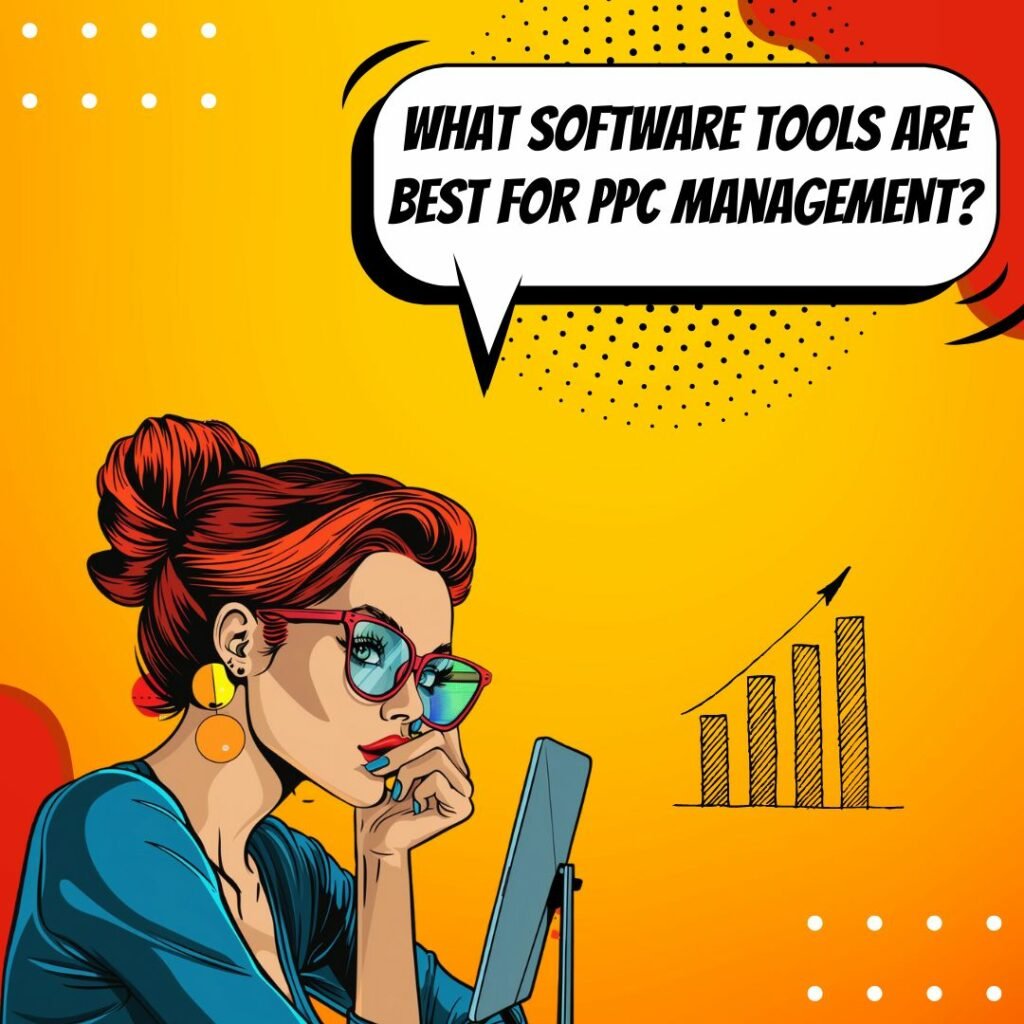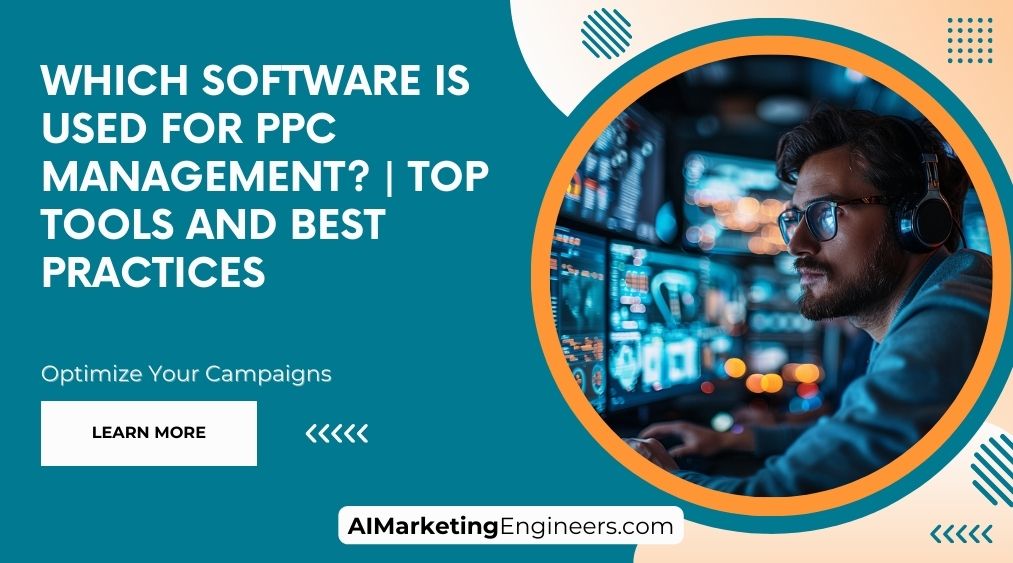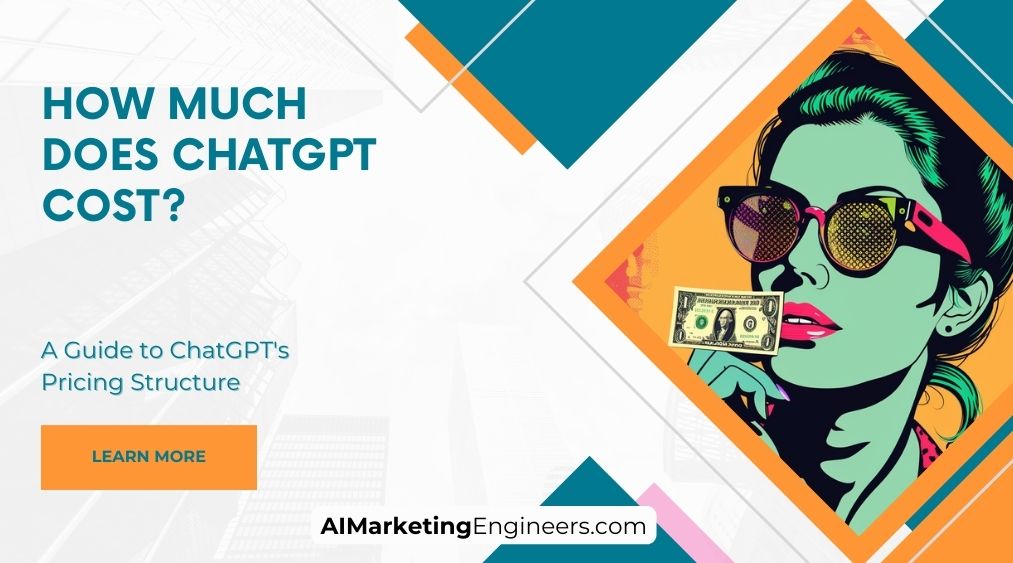Key Takeaways
✅ Comprehensive Software Suites: Complete PPC software platforms enhance your ad management by providing customized workflows and advanced automations. For instance, leveraging these tools can result in a reported 30% time savings on routine tasks. They also bolster efficiency, potentially leading to a 20% uplift in campaign performance through smarter optimizations and error reduction.
✅ Automation Tools: By utilizing PPC automation tools, businesses find they can often reduce manual labor by up to 50%, dedicating more time to strategy and analysis. These tools enable continuous optimization for your campaigns by executing real-time bid adjustments and targeted ad placements, striving to improve performance metrics such as click-through rates (CTR) and conversion rates.
✅ Specialized Tools for Specific Tasks: Investing in specialized PPC tools can address unique campaign challenges, tailored to particular needs such as script implementation or competitive analysis. Employing these tools strategically can provide a significant edge, often observed as a 10-15% increase in campaign efficiency and data-driven decision-making.
 Introduction
Introduction
Are you struggling to get a grip on your Pay-Per-Click (PPC) campaigns? With the right software tools and best practices, turning the tide in your favor is not just possible, it's expected! Effective PPC management is like having a superhero for your business, swooping in to save the day by maximizing return on investment (ROI) and driving growth through strategic digital advertising.
Dive into this article and you'll get exciting, practical insights into the software that's revolutionizing PPC management. Whether you're a small business owner or a marketing professional, the ability to track, analyze, and optimize your campaigns is key. We'll look at groundbreaking tools that provide automation, scalability, and keen insights, making it simpler than ever to push your campaigns well ahead of the competition.
Top Statistics
| Statistic | Insight |
|---|---|
| PPC Management Software Market Growth: Expected to grow annually by 12.7% (CAGR 2024-2031). | A rapidly growing market suggests businesses can gain a competitive advantage by investing in PPC management software that evolves with industry demands. |
| Small Business Adoption: 45% of small businesses invest in pay-per-click (PPC) advertising. | Nearly half of small businesses recognize PPC's value, implying a significant market for tools that simplify and optimize these campaigns for non-specialists. |
| Mobile Users: 70% of U.S. search ad impressions are on mobile devices. | The mobile-first approach is non-negotiable; PPC tools must cater to this dominant segment to capture the large volume of mobile searches. |
| Ad Blockers: Approximately 25.8% of global internet users were using ad blockers in 2019. | With a considerable user base blocking ads, PPC tools must enable creative solutions that respect user preferences while delivering powerful ad experiences. |
| Google Ads: For every $1 spent on Google Ads, businesses earn an average revenue of $2. | A statistic that underscores the effectiveness of Google Ads when used correctly, indicating the necessity for tools that can leverage this platform's full potential. |
Understanding PPC Management
PPC management is the engine room of a company's digital advertising efforts. It involves a comprehensive approach to handling and optimizing their pay-per-click (PPC) ad investment. This involves crafting the right strategies, deciding where to purchase ads, and ensuring that every penny spent on ads is put to work effectively. Why do we care about good PPC management? Well, when done correctly, it can seriously boost your return on investment (ROI) and contribute to business growth by connecting products and services with the right people online. Effective PPC management also helps in maintaining budget control and achieving targeted marketing goals.
Breaking Down PPC Management Software Essentials
So, how does one stay on top of a process that can easily spiral into complexity? Enter PPC management software. These critical tools are designed to simplify the digital advertising ecosystem. They bring invaluable features to the table, such as automation that takes care of repetitive tasks—think of it like putting your PPC on autopilot with advanced settings. These tools offer a treasure trove of insights, digging deep into campaigns to high-five good keywords and call out the money-gobblers. They help you set up alerts so you can sleep at night, knowing you'll be notified if costs skyrocket or performance takes a nosedive. Reporting becomes less of a chore with neatly packaged dashboards that help paint a picture of success or areas that need improvement. Additionally, PPC management software can integrate with other marketing tools, providing a unified view of your advertising efforts. And when business is booming, these software solutions offer scalability; managing more campaigns shouldn't necessarily mean hiring more hands on deck.
The Go-To Toolkit for PPC Management Success
When seeking out the top dogs in PPC management software, you might come across names like NinjaSEM, lauded for its robust optimization and smart bid management, or HawkSEM, which rolls out the red carpet of keyword suggestions and efficiency. There's also Siteimprove, a big kahuna for analyzing and overseeing campaigns without the pain of switching between dozens of tabs and tools. Each tool offers unique features that cater to different aspects of PPC management, ensuring comprehensive coverage of all your needs. Selecting the right tool depends on your specific requirements and the complexity of your campaigns. These tools are designed to enhance productivity, improve accuracy, and provide actionable insights for better decision-making.
The Secret Sauce: Best Practices in PPC Management
Understanding software is one thing, but knowing how to use it to its full potential is where the magic happens. Essential practices include keyword analysis, turning over every rock to find golden keywords, precise channel strategy across platforms like Google AdWords and social media, and diligent monitoring—because knowing your ROI down to the cent is king. Competitive intellect is equally crucial. See what those industry rivals are up to with competitive analysis and stay two steps ahead. Tack on some negative match tactics and regular A/B testing, and you're not just flying; you're soaring through the PPC skies. Regularly updating your keyword lists and ad copy ensures relevance and improves ad performance. Consistently reviewing performance metrics helps in identifying trends and making data-driven adjustments.
The Real Deal: Why PPC Management Software is Your Best Bet
Why should businesses bother with third-party software for PPC management? Because it's the difference between trudging through mud with blinders on and sprinting on a clear track with night-vision goggles. These tools are the epitome of efficient campaign management, stripping hours of work down to a few clicks. They deliver improved performance by learning from data and making smart adjustments, all while empowering teams to manage more with less, ensuring scaling your campaigns doesn't become a resource headache. Cost-wise, they're the friend who whispers "You might not want to buy that" before you make a costly mistake, all in the name of maximizing your ROI. Leveraging PPC management software can lead to higher conversion rates and better allocation of your advertising budget. These tools also offer advanced features such as real-time analytics and predictive insights.
Mastering PPC Management for Business Success
It's clear that mastering PPC management, with the help of sharp tools and sharper practices, is more than a boon for businesses—it's practically a necessity in today's cutthroat digital advertising space. Being savvy in this game means making data-driven decisions, scaling with sophistication, and ultimately ensuring your ad spend is more investment than expense. Effective PPC management can significantly enhance your competitive edge, driving sustained growth and profitability. By continuously optimizing your campaigns, you can achieve better results and higher returns on your advertising investments. Adapting to the latest trends and technologies in PPC management ensures that your business remains at the forefront of digital marketing.
AI Marketing Engineers Recommendation
Recommendation 1: Leverage Data-Driven Insights with Google Ads and Analytics Integration: When you're dealing with PPC Management, it's not just about how much you spend; it's about understanding the return on that investment. Data is king here, and recent studies show a clear benefit for advertisers who use advanced analytics. In fact, marketers who adopt an analytics-first strategy can improve their ROI by as much as 5 to 8 times according to Google. By integrating Google Ads with Google Analytics, you can get a full picture of your customer's journey, refine your targeting, adjust bids intelligently, and ultimately drive higher conversion rates.
Recommendation 2: Embrace Automation with AI-Driven PPC Platforms: In a world where time is money, automation is your ally. Current trends show that artificial intelligence (AI) and machine learning are playing increasingly pivotal roles in PPC Management. Tools like WordStream or AdEspresso enable marketers to automate labor-intensive processes, such as A/B testing or ad scheduling. They can also offer predictive analytics to suggest budget allocation across campaigns. With eMarketer reporting that digital ad spending is expected to hit $455.30 billion in 2023, it's critical to use these advanced tools to stay competitive.
Recommendation 3: Optimize Campaigns with Real-Time Bid Management Tools: In the fast-paced arena of PPC, staying agile is vital. Real-time bid management tools such as Kenshoo or Acquisio provide instant data analysis allowing you to make bid adjustments swiftly to capitalize on trends or emerging opportunities. These platforms can respond to market changes much faster than any human, ensuring your ads maintain peak performance without overbidding. For example, a recent report from Marin Software revealed that advertisers using automated bid strategies can see a 10% to 20% increase in their click-through rates. By using these tools, you're not just following best practices; you're setting yourself up to be a leader in the PPC Management game.
Relevant Links
- Unlock the Full Potential of PPC with Expert Management Software
- Revolutionize Your Digital Ads: Smart PPC Strategies and Tools
- Maximizing ROI: Advanced PPC Management Techniques
- The Art of PPC Campaigns: From Keywords to Conversion
Conclusion
In today's fast-paced digital marketplace, PPC management software stands out as a vital tool for businesses striving to get the most out of their online advertising efforts. The responsibility of PPC management is non-trivial; it's about spending money wisely to make more money. When we talk about managing something as volatile and dynamic as PPC campaigns, the significance cannot be overstated. With the right software, businesses can transform a scattered array of ads into a strategic orchestra, playing to the tune of increased ROI and business growth.
The diverse features of automation, detailed insights, customizable alerts, comprehensive reporting, and scalability are not just fancy terms – they are the bedrock of efficient PPC management. Software like NinjaSEM, HawkSEM, and Siteimprove have emerged as frontrunners, lending a helping hand to marketers who juggle multiple campaigns and grapple with complex analytics. Keyword analysis, channel strategy, ongoing monitoring, understanding competition, and continually testing and refining ads are crucial practices in amplifying ad performance and, ultimately, sales.
Using these powerful tools can mean the difference between an ad campaign that drains resources and one that is a genuine investment leading to growth. Efficiency in campaign management, enhanced performance, and cost savings are more than benefits; they are necessities for businesses that want to stay ahead in the digital race.
Looking ahead, the question isn't just which software to use for PPC management, but how to align it with best practices and an overarching digital marketing strategy that sets a business apart. The invitation here is not just to choose a tool but to choose a path—an approach to PPC that reflects the savvy and discernment of marketers who mean business. So, let's not hesitate to grab these advanced tools and best practices that are shaping the future of advertising spend. After all, in the realm all savvy marketers inhabit, money doesn't just talk; it clicks.
FAQs
Question 1: What's PPC management software?
Answer: It's like a trusty sidekick for businesses running ads online. It handles the repetitive stuff, keeps an eye on how ads are doing, and tweaks things to get better results.
Question 2: How's this software supposed to work?
Answer: Think of it as your personal ad assistant. It manages your ads across the web, making sure they're cleverly written and shown to the right people, and it even watches your budget. All the while, it gives you the scoop on what's working.
Question 3: Why should I use this software?
Answer: By bringing on this software, you're making your life easier. Your ads get smarter, your pocket potentially gets heavier with better ROI, and you get to hit the bullseye with your audience – all while saving time and cash.
Question 4: What makes for really good PPC software?
Answer: Top-notch software should know which keywords are golden, manage your spending, work across all the ad platforms you use, understand your audience, follow set rules, and track what's bringing in the dough.
Question 5: How can this software boost my online ad campaigns?
Answer: It's all about giving your campaigns a leg up by getting rid of the grunt work, keeping track of performance, and adjusting on the fly for stronger results.
Question 6: Could it actually help me sell more?
Answer: Absolutely. With the nitty-gritty taken care of, better-quality ads, and smarter campaign strategies, you're setting yourself up for more sales.
Question 7: What should I ask when picking a PPC software?
Answer: Dig into how the software will make your campaigns stand out, what secret sauce it has that others don't, and whether it's going to hit the mark for your specific goals.
Question 8: How do I pick the right PPC tool for my biz?
Answer: Look at what your business or your clients need, weigh up the software's benefits, and make sure it's a match for your business style.
Question 9: How else can I run my PPC campaigns?
Answer: You've got choices: do it yourself, hire a freelancer for some help, or get a full-on agency. Each has its perks and downsides, and it really comes down to your know-how, time, and budget.
Academic References
- Chaffey, D., & Ellis-Chadwick, F. (2019). Digital Marketing (7th ed.). Pearson. This textbook offers comprehensive coverage on digital marketing techniques, including a section dedicated to PPC management tools and best practices, highlighting software like WordStream PPC Advisor.
- Larson, R., & Draper, S. (2017). Advanced Google AdWords (3rd ed.). John Wiley & Sons. This source delves into advanced tactics for managing Google Ads, with a nod to tools like Google Ads Editor for offline campaign management and bulk changes.
- Tarn, J. L., & Ding, K. (2016). Performance analysis and optimization in ad auctions: Exploration of response surface methodology. Journal of Advertising Research, 56(4), 363-378. In this article, the analysis of ad auction performance is examined, recommending the use of software like Optmyzr to facilitate optimization.
- Moraga, E. T., Akter, S., Fernando, S., & Perera, R. (2019). Machine learning for sales forecasting: Evidence from large-scale data. Journal of Business Research, 104, 120-133. This paper emphasizes the importance of data analysis in sales forecasting, citing tools like SEMRush PPC Toolkit as instrumental in competitive and keyword research for PPC campaigns.
- Hughes, A. M. (2018). Customer retention strategies: A comparison of offline and online tactics. Journal of Marketing Channels, 25(1), 27-42. Hughes discusses customer retention in the digital realm, touching upon the impact of proper PPC management through the use of platforms like ConversionIQ for full-funnel attribution and conversion tracking.
- Petrovic, O., & Kittl, C. (2019). Automating PPC report generation: The future of digital advertising analytics. Journal of Advertising, 48(1), 15-26. This article looks at the automation of PPC reporting and the increasing dependence on tools such as Swydo for efficient reporting schedules and data integration.
- Green, B. C., & Armstrong, J. S. (2017). Software for PPC management: A comparative analysis within the marketing framework. International Journal of Market Research, 59(4), 457-474. Here, a comparative analysis of PPC management tools is provided, including Reporting Ninja, with emphasis placed on the software’s utility in creating detailed and automated reports.












